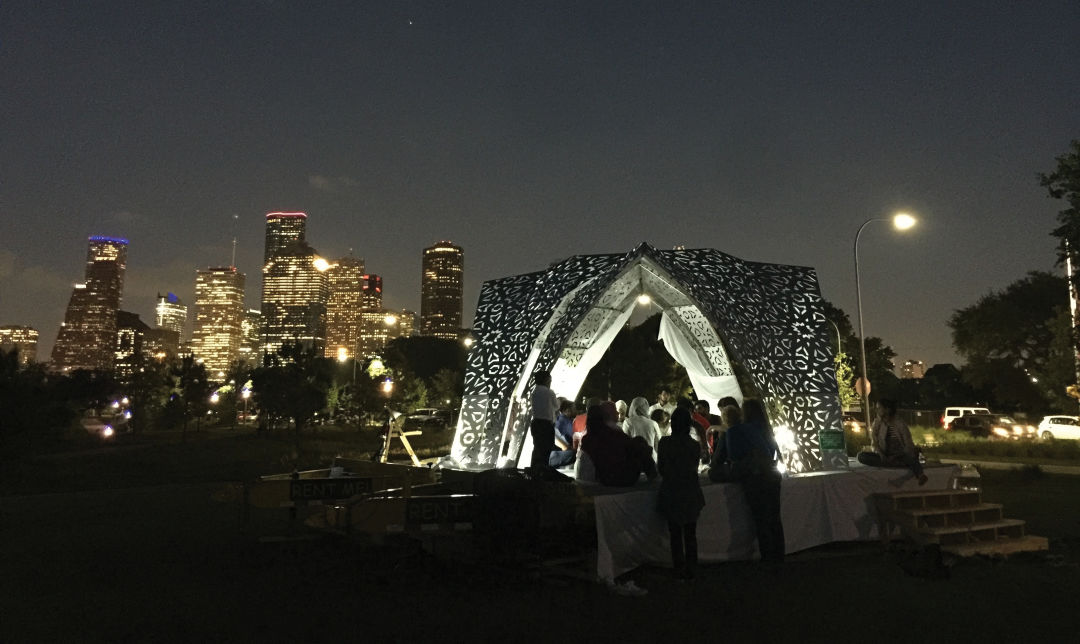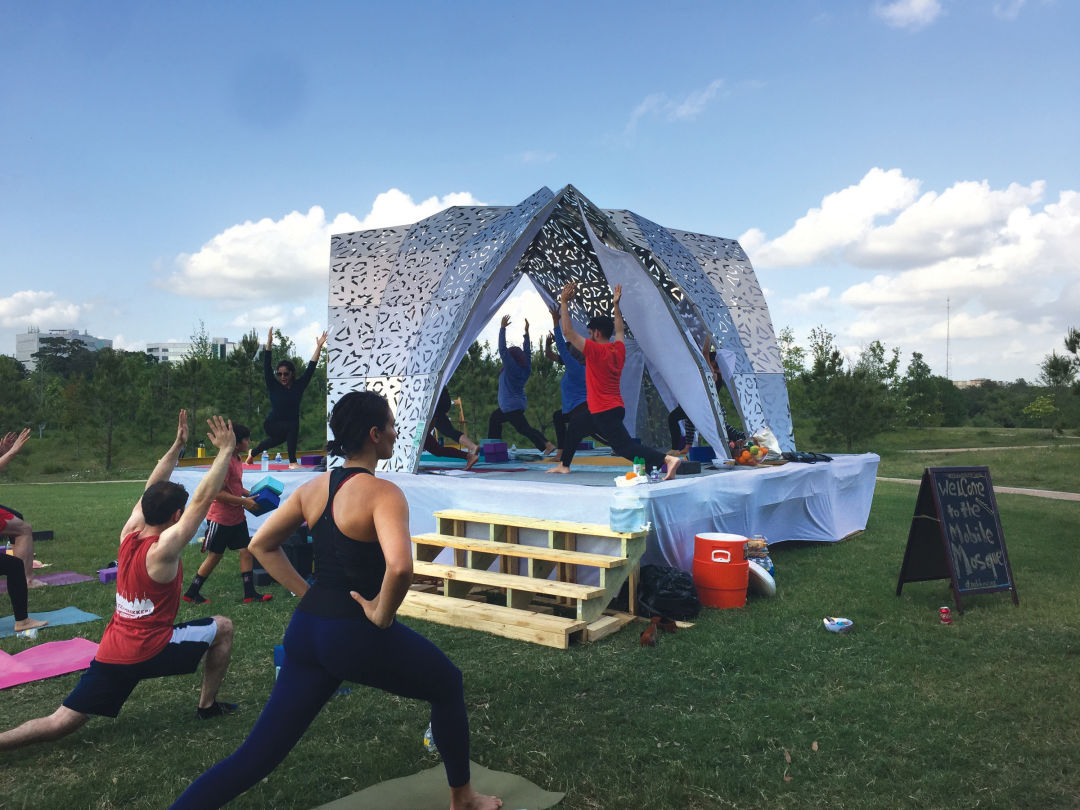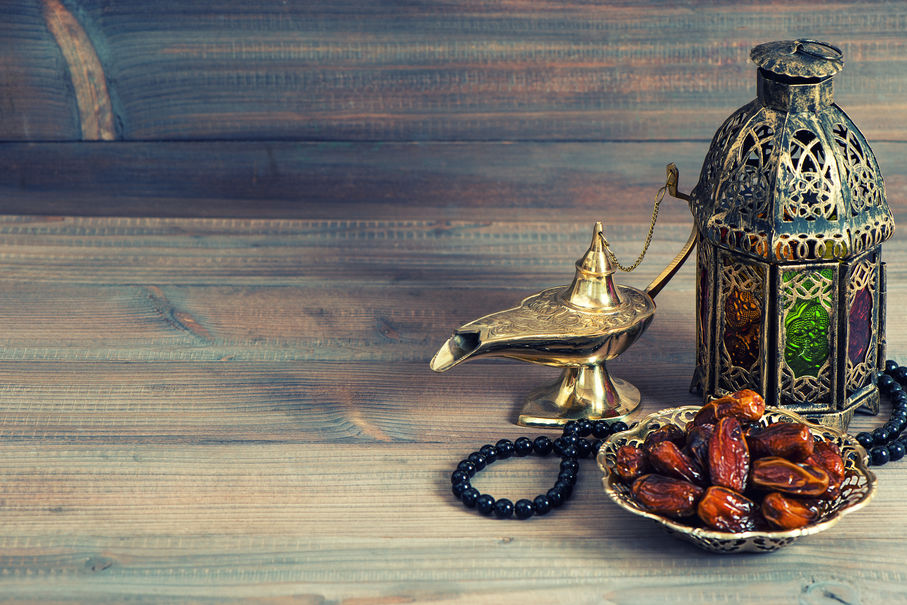With Ghana ThinkTank, Houston Gets a Little Help from Afar

The Mobile Mosque visited sites throughout Houston.
Image: Courtesy of Ghana ThinkTank
For a week this spring, twin white Dodge Rams trolled the streets of Houston together. Each pulled a flatbed trailer rigged with steel arches. When the trucks parked next to each other, those arches formed a beautiful dome, laser-cut with geometric shapes. White sheets billowed down from the makeshift creation, over an array of rugs scattered on top of the trailer beds.
Taken together, the setup looked sort of like a stage, and sort of like a place to hang out. And it was both those things, yes, but also a place to pray: a Mobile Mosque that, of all things, was dreamt up by a group of Syrian refugee women living outside of Belgrade, Serbia.
Allow us to explain. The concept was the creation of an artist collective called Ghana ThinkTank, formed in 2006 by a group of artists and activists, with outposts in countries including Serbia, El Salvador, Cuba, Mexico and Ghana. They’d spent time abroad—witnessing countries like the United States swooping in and trying to solve the problems of the developing world—and wanted to turn that relationship on its head to “develop the First World.”
“We found that even with the best intentions, the Western development model of paternalism can do as much harm as good,” says Houston native Maria del Carmen Montoya, one of the founders of the collective, who now lives in Washington, D.C. “We’ve been looking for ways to respond to this power dynamic in an art concept. We collect problems in the so-called First World and take them to citizen ‘think tanks’ in the so-called Third World.”
For their submission to last year’s CounterCurrent Festival at UH, ThinkTank members asked Bayou City residents to submit “Houston diversity problems.” Among the many responses, one stood out. “Even though Texas is so religious,” a young Muslim and Houstonian said, “I feel like five times a day I have to hide just to pray.”
So ahead of this year’s festival, working from across the globe, the Syrian refugees came up with a solution. “Understandably, these women really, really felt this problem,” Montoya says. “They said, ‘If the young man doesn’t have a safe place to pray, then the mosque has to come to him.’” And the Mobile Mosque was born.

Events at the Mobile Mosque included classes in yoga and calligraphy.
Image: Courtesy of Ghana ThinkTank
During the weeklong fest this April, the mosque hosted punk band Giant Kitty at a Bismillah Block Party at Levy Park; a local imam leading Friday prayers, followed by a sunset yoga class, at Buffalo Bayou Park; a group of young Muslims called Grassroots Islam, who had a discussion about inclusivity, also at BBP; a group of Syrian refugees whose catering company served a feast to students on the UH campus; and a local artist who taught a class on wood-burning calligraphy at Aurora Picture Show.
But Montoya’s favorite event was a conversation at UH about how to nurture oneself and others, that drew people of all ages and faiths. “It was such a safe and intimate space in that structure,” Montoya says. “People were being so open and so vulnerable.”
Afterward, strangers exchanged numbers and emails, planning to meet up again. A young Muslim woman walked up to Montoya with tears in her eyes. “I’ve never felt safe in any Muslim spaces,” she told Montoya. “I always felt like I had to hide. But not here. Here I felt like myself.”
For more on Ghana ThinkTank, visit ghanathinktank.org.




